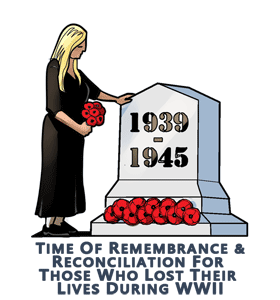Time of Remembrance and Reconciliation for Those Who Lost Their Lives During the Second World War
Quick Facts in South Africa
| 2025 Date | 8 May 2025 |
|---|---|
| 2026 Date | 8 May 2026 |
2025 Holidays & Dates - South Africa
| South Africa & Common Holidays | ||
| Misc. & Int'l. Observances | ||
| Christian Holidays | ||
| Jewish Holidays | ||
| Muslim Holidays |
|
|
›
|
|
